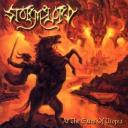Yahoo Clever wird am 4. Mai 2021 (Eastern Time, Zeitzone US-Ostküste) eingestellt. Ab dem 20. April 2021 (Eastern Time) ist die Website von Yahoo Clever nur noch im reinen Lesemodus verfügbar. Andere Yahoo Produkte oder Dienste oder Ihr Yahoo Account sind von diesen Änderungen nicht betroffen. Auf dieser Hilfeseite finden Sie weitere Informationen zur Einstellung von Yahoo Clever und dazu, wie Sie Ihre Daten herunterladen.
thucydides, on justice power and human nature?
i have to read this book for my humanities class and have to come up with questions. does anyone know anything about this book and could give me a quick into what its about? im kinda lost.
please help
2 Antworten
- M O R P H E U SLv 7vor 1 JahrzehntBeste Antwort
To get you started:
Scholars traditionally view Thucydides as recognizing and teaching the lesson that democracies need leadership, but that leadership can be dangerous to democracy. Leo Strauss (in The City and Man) locates the problem in the nature of Athenian democracy itself, about which, he argued, Thucydides had a deeply ambivalent view: on one hand, Thucydides' own "wisdom was made possible" by the Periclean democracy, which had the effect of liberating individual daring, enterprise, and questioning spirit, but this same liberation, by permitting the growth of limitless political ambition, led to imperialism and, eventually, civic strife.
For Canadian historian Charles Norris Cochrane (1889–1945), Thucydides' fastidious devotion to observable phenomena, focus on cause and effect, and strict exclusion of other factors anticipates twentieth century scientific positivism. Cochrane, the son of a physician, speculated that Thucydides' generally (and especially in describing the plague in Athens) was influenced by the methods and thinking of early medical writers such as Hippocrates of Kos.
After World War II Classical scholar Jacqueline de Romilly pointed out that the problem of Athenian imperialism was one of Thucydides' central preoccupations and situated his history in the context of Greek thinking about international politics. Since the appearance of her study, other scholars subsequently further examined Thucydides treatment of realpolitik.
More recently, scholars have questioned the perception of Thucydides as simply "the father of realpolitik". Instead they foreground the literary qualities of the History, which they see as belonging to narrative tradition of Homer and Hesiod and as concerned with the concepts of justice and suffering found in Plato and Aristotle and problematized in Aeschylus and Sophocles. Richard Ned Lebow believes that the modern habit of erecting a firewall of separation between the social sciences and the ethical preoccupations of the humanities is a mistake, since no such separation was ever obtained in the ancient world. He and other recent scholars affirm that Thucydides was indeed concerned with ethical issues such as prudence and the need for peace; that, even though he did not explicitly engage in moralizing within his text, his work conveys a profound horror of war and violence. Lebow terms Thucydides: "the last of the tragedians":
Viewed as a tragedy, his portrayal of the Peloponnesian War leads us to a very different set of questions, understandings of politics and of knowledge itself. . . Greek tragedy was rooted in the empirical observation that there is no relationship between justice and suffering. Tragedy confronts us with our frailties and limits and the disastrous consequences of trying to exceed them. It advances a counter-intuitive thesis: that efforts to limit suffering through the accumulation of knowledge or power might invite more suffering. . . Thucydides drew heavily on epic poetry and tragedy to construct his history, which not surprisingly is also constructed as a narrative.
In this view, the blind and immoderate behavior of the Athenians (and indeed of all the other actors), though perhaps intrinsic to human nature, ultimately leads to their downfall. Thus his History could serve as a warning to future leaders to be more prudent, by putting them on notice that someone would be scrutinizing their actions with a historian's objectivity rather than a chronicler's flattery.
Finally, the question has been recently raised as to whether Thucydides was not greatly, if not fundamentally, concerned with the matter of religion. Contrary to Herodotus, who portrays the gods as active agents in human affairs, Thucydides attributes the existence of the divine entirely to the needs of political life. The gods are seen as existing only in the minds of men. Religion as such reveals itself in the History to be not simply one type of social behavior among others, but what permeates the whole of social existence, permitting the emergence of justice...from wikipedia
Quelle(n): M - vor 6 Jahren
This Site Might Help You.
RE:
thucydides, on justice power and human nature?
i have to read this book for my humanities class and have to come up with questions. does anyone know anything about this book and could give me a quick into what its about? im kinda lost.
please help
Quelle(n): thucydides justice power human nature: https://tr.im/fvvJZ


